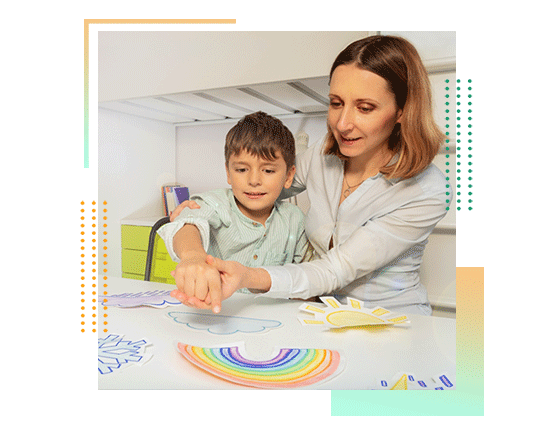Child Therapy
Child therapy is not always easy for parents to discuss.With the stigma of mental health, nobody wants their child to “need therapy,” which is unfortunate because therapy can change lives. Whether kids have traumatic issues or are struggling with the brave and simple act of being human, qualified professionals can help kids deal with really hard subjects.
It makes sense that parents and guardians need professional insight, especially for tender subjects or developmentally appropriate issues of growing up. Many people consider child therapy for huge topics like abuse, neglect, and trauma, but it can have an equally weighted focus on positive growth and strengths.
Therapy sessions can focus on working towards an optimistic future, developing positive coping methods, as well as boosting self-esteem, self-confidence, and other positive states and traits in children.

What Is Child Therapy?
Child therapy (also called child counseling) is similar to therapy and counseling for adults: it offers a safe space and an empathetic ear while providing tools to bring about change in thoughts, feelings, and behaviors.
Just like adult clients, child clients receive emotional and goal support in their sessions. They can focus on resolving conflict, understanding their own thoughts and feelings, and on thinking of new solutions to their daily problems.
The only big difference between adult therapy and child therapy is the emphasis on making sure children understand what is happening, and how they are not alone.
Issues That The Therapist Covers
The therapist and client(s) can cover a wide variety of issues that include:
When is Child Therapy Effective?
One of therapies may work for a child far better than the others, and the type chosen will depend on the issue(s) the child and family are dealing with. Like with any form of therapy, it is most effective when everyone involved is on board, supportive, and contributing to its success.
If a parent or guardian is not sure whether the child needs counseling or not, the list of symptoms below can be a good indicator. If the child is experiencing one or more of these symptoms, coupled with the parent’s concern, it’s a good idea to take him or her in for an evaluation.
The following are symptoms that may indicate a problem that therapy can correct or help with:

- Unwarranted aggression
- Incontinence
- Difficulty adjusting to social situations
- Frequent nightmare and sleep difficulties
- A sudden drop in grades at school
- Withdrawing from activities they normally enjoy
- Loss of appetite or dramatic weight loss/gain
- Performing obsessive routines like hand washing
- Expressing thoughts of suicide
- Talking about voices they hear in their head
- Social isolation and wanting to be alone
- Alcohol or drug use
- Increased physical complaints despite a normal, healthy physician’s report
- Self-harm such as cutting

